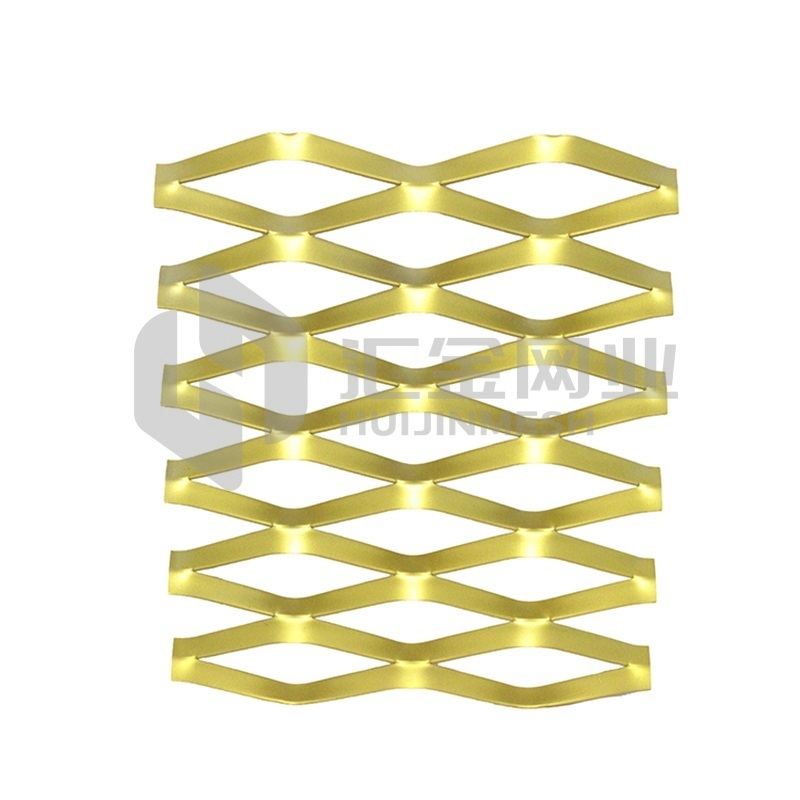
Why Choosing the Right Supplier for Architectural Expanded Mesh Matters
Aug 24,2025
Architectural expanded mesh is a versatile material, commonly utilized in modern design for both aesthetic and functional purposes. Made from metal sheets that are slit and stretched, expanded mesh offers a unique combination of strength and lightweight properties. Its applications range from facades and ceilings to security screens and decorative elements, making it an ideal choice for architects and designers looking to push the boundaries of creativity.
When it comes to architectural projects, the choice of supplier can significantly impact the overall project outcome. Selecting the right supplier for architectural expanded mesh is not merely a transactional decision; it's a strategic one that can affect design integrity, material quality, and project timelines. Here, we explore why the supplier you choose matters.
Quality is paramount in the production of architectural expanded mesh. A reputable supplier should adhere to strict manufacturing standards, ensuring that the final product meets or exceeds industry expectations. By choosing a supplier known for their quality control processes, you guarantee that the mesh will not only look good but will also provide the necessary durability and safety for architectural applications.
Architectural expanded mesh comes in various designs and patterns, offering limitless possibilities for creativity. A good supplier should provide customization options to cater to specific design needs. Whether you require a unique pattern, specific dimensions, or special finishes, the right supplier will work with you to achieve your vision.
In addition to customization, a reliable supplier should offer a broad range of products. This ensures that you can find the right type of expanded mesh for your project, whether it's for façade cladding, ceiling applications, or decorative screens. A wide product range reflects the supplier's expertise and confidence in their offerings.
A reliable supplier guarantees not only quality but also timely delivery. In any construction project, time is of the essence. Delays in receiving materials can halt progress and lead to increased costs. Therefore, it’s crucial to partner with a supplier known for their efficient supply chain management.
While cost is always a consideration, it should not be the sole determinant when choosing a supplier. Low-priced products often compromise on quality, leading to higher long-term costs due to repairs or replacements. Instead, look for a supplier that offers a fair price without sacrificing quality.
When estimating costs, consider the Total Cost of Ownership, which includes not just the initial purchase price but also installation, maintenance, and potential replacement costs. A more expensive but high-quality expanded mesh can offer better long-term value.
A supplier's reputation in the market can provide insights into their reliability and quality. Researching customer reviews and testimonials can help you gauge the experiences of other designers and architects. Look for a supplier with a solid track record of successfully completed projects and satisfied customers.
A well-connected supplier is often more resourceful. They can provide valuable insights regarding industry trends, new technologies, and innovative applications of architectural expanded mesh. This knowledge can enhance your designs and help you stay ahead in a competitive market.
As the architectural industry evolves, so do manufacturing technologies. A forward-thinking supplier embraces technological advancements that improve production efficiency, quality control, and product innovation. Selecting a supplier that leverages cutting-edge technology can result in superior products that meet modern architectural standards.
The versatility of architectural expanded mesh allows for innovative applications in various design scenarios. From enhancing building aesthetics to providing functional solutions like sun shading, a supplier with an understanding of these applications can offer guidance that enhances your design.
Choosing between local and international suppliers can impact costs, delivery times, and communication. Local suppliers may offer quicker turnaround times and easier communication, while international suppliers might provide access to unique products not available locally. It's essential to weigh these factors based on your specific project needs.
PREVIOUS:






